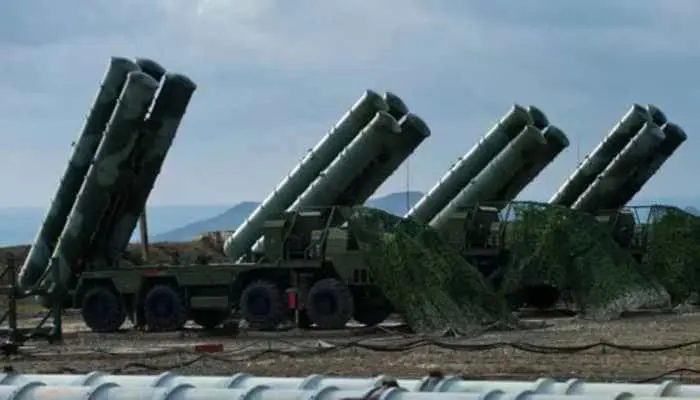
Turkey’s pivot from Russia’s S-400 to America’s F-35 has stunned global defense watchers
From Moscow to Lockheed: Turkey’s Strategic Reset
In a stunning reversal, Turkey is reportedly preparing to abandon its Russian-made S-400 air defense systems in a bid to rejoin the U.S.-led F-35 fighter jet program. The move follows a high-stakes meeting between President Recep Tayyip Erdoğan and former U.S. President Donald Trump at the NATO summit in The Hague.
The S-400 deal, signed in 2017 and worth $2.5 billion, had triggered a diplomatic firestorm. The U.S. imposed sanctions on Turkey and expelled it from the F-35 consortium, citing security risks posed by integrating Russian systems with NATO infrastructure.
But now, the winds appear to be shifting. Erdoğan has publicly stated that Turkey has “not closed the door” on the F-35, and Trump has confirmed that Ankara’s return is “being worked out”. The S-400s, which remain unactivated and locked in a Turkish military base, may be mothballed or sold to a third country as a goodwill gesture to Washington.
This pivot coincides with Turkey’s unveiling of its domestic “Steel Dome” air defense initiative, signaling a broader move toward indigenous and Western-aligned systems.
India in the Crosshairs: A Strategic Opportunity or Diplomatic Minefield?
As Turkey looks to offload its S-400s, India has emerged as a potential buyer, alongside Pakistan. For New Delhi, which already operates the S-400 and has faced delays in deliveries from Russia due to the Ukraine war, acquiring additional units could bolster its layered air defense network.
India’s interest in the S-400 stems from its proven ability to intercept aircraft, cruise missiles, and ballistic threats at ranges up to 400 km. The system complements India’s indigenous Akash and Israeli Barak-8 platforms, creating a multi-tiered shield against regional adversaries.
However, the geopolitical calculus is complex:
- Buying Turkish S-400s could be seen as legitimizing Ankara’s pivot away from Moscow, potentially straining India-Russia ties.
- U.S. reaction is uncertain. While India has avoided CAATSA sanctions so far, another S-400 deal, even indirectly could test Washington’s patience.
- Turkey’s support for Pakistan in recent conflicts may also make Indian policymakers wary of deepening defense ties.
Still, the prospect of acquiring fully built, unused S-400 units possibly at a discount may prove too tempting to ignore.
Global Implications: Realignment, Rivalries, and the Future of Air Defense
Turkey’s potential return to the F-35 fold is more than a bilateral thaw, it’s a symbolic realignment. It signals Ankara’s desire to re-anchor itself in the Western defense ecosystem, even at the cost of alienating Moscow.
For Russia, the move is a blow to its prestige and arms export credibility. The S-400 was touted as a NATO-disrupting triumph. Now, its abandonment by a key buyer could dent its appeal in global markets.
For India, the situation presents both opportunity and risk. Acquiring the Turkish S-400s could:
- Accelerate deployment timelines amid regional tensions
- Reduce dependency on delayed Russian shipments
- Enhance deterrence against China and Pakistan
But it could also invite diplomatic backlash and complicate India’s delicate balancing act between the U.S., Russia, and its own strategic autonomy.
Conclusion:
Turkey’s decision to sideline the S-400 in pursuit of F-35 reintegration is a geopolitical curveball. For India, the abandoned missile systems offer a tantalizing opportunity but one fraught with diplomatic landmines. As Ankara reorients westward, New Delhi must weigh whether this is a deal worth chasing or a trap best avoided.
Stay updated with the latest news on Rapido Updates. Keep yourself updated with The World, India News, Entertainment, Market, Automobile, Gadgets, Sports, and many more